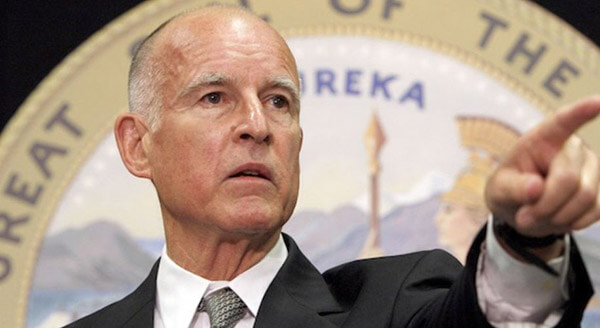 California Introduces Bill to Legally Recognize Blockchain Records
California Introduces Bill to Legally Recognize Blockchain Records California Introduces Bill to Legally Recognize Blockchain Records

Unsplash
With Arizona recently having passed a bill that allows citizens to pay their taxes via various cryptocurrencies, California has been the latest addition to the list of states that are now actively looking to incorporate blockchain technology into their daily mode of operation.
In a highly anticipated move, California lawmakers have introduced a new Assembly Bill on the 20th of Feb that pushes for the recognition of blockchain contracts, signatures and transactions for all legal purposes.

However, the tabled bill still needs to be approved by the state assembly and signed off by Governor Jerry Brown before it can take effect and become operational. The potential law reform is being championed by Ian Calderon — one of the youngest members of the California state assembly.
He has been a big proponent of the blockchain for quite some time now and is hoping to legalize the application of this technology for storing digital signatures, which in turn will allow for crypto smart-contracts to be used for legal reasons.
In the bill tabled by Mr. Calderon, he clearly defines the meaning of digital signatures and how they can be used to facilitate government transactions:
“A signature that is secured through blockchain technology is an ‘electronic signature’ and even updated the term ‘contracts’ to smart contracts or self-executing pieces of code that trigger when certain conditions are met like, reaching a particular block number on blockchain.”
The bill also expresses clear guidelines and recommendations regarding the securitization of personal data within the blockchain. This will be especially useful for those individuals who like to carry out interstate and international crypto exchanges on a regular basis.
What’s next?
If the bill does get passed by the assembly and becomes a formal legislation, it will put California in a small club that includes Vermont, Tennessee, Florida, and Arizona as being one of the few crypto friendly states within the US.
The difference, however, lies in the fact that California is quite large and also has immense economic importance from a global perspective.
Hence, it will be interesting to see how the blockchain evolves within a government framework that deals with a large number of daily transactions.
Lastly, California also has the largest population density within the US and is in possession of a multi-trillion dollar economy which is comparable to that of the UK.
Final Thoughts

The biggest challenge that seems to lay ahead for Crypto within the US is that of educating Congress members about the advantages of such technologies, especially within the administrative domain.
According to Brian Forde, a politician running for a congressional seat in California, emerging blockchain services are already available for government use, but due to the “close-mindedness” of many top Senate leaders, the adoption of blockchain has been a bit slow.
However, with California getting onboard the crypto train, it is now a matter of time before other states follow suit and work towards integrating blockchain solutions to streamline local administration, and thus make the entire legislative process more transparent and inclusive.

























































